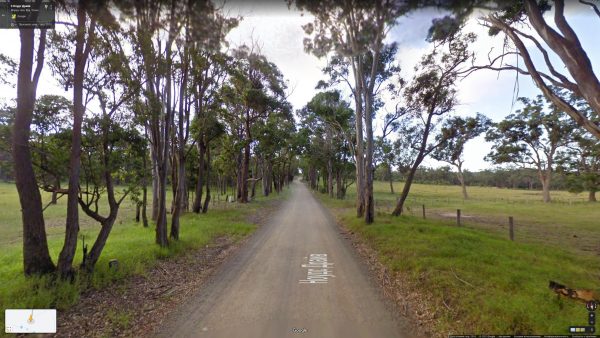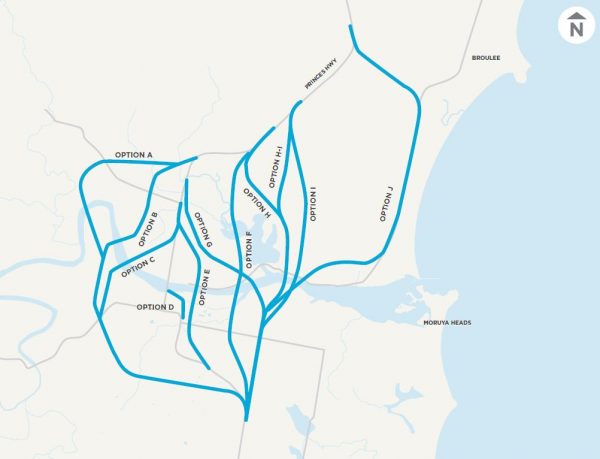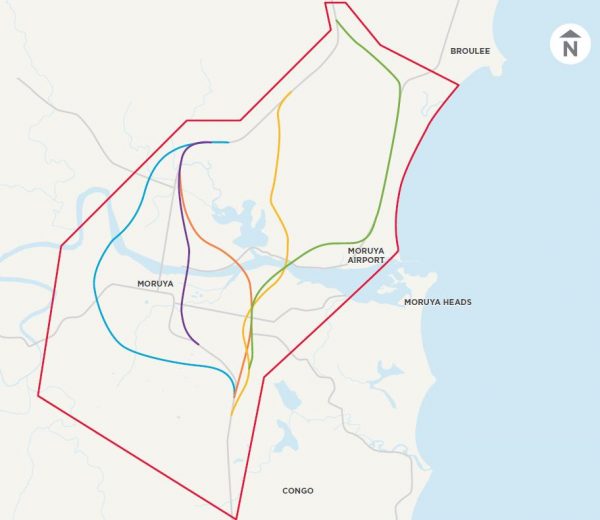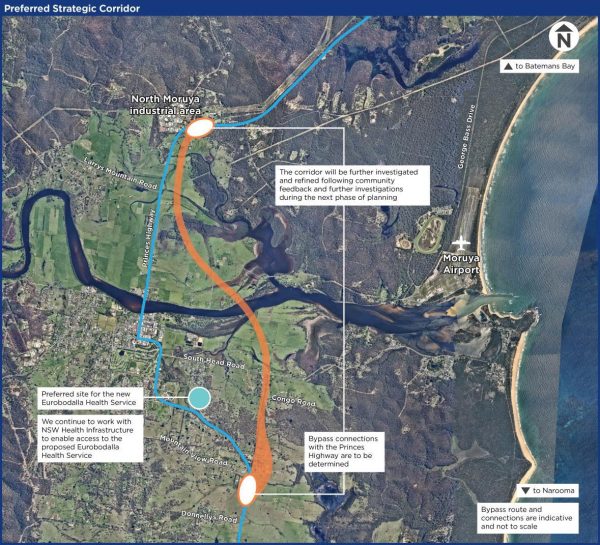
I have started this petition because I am concerned that Transport NSW is not doing the right thing by the environment for the future Moruya bypass project.
https://www.thepetitionsite.com/takeaction/405/817/554/
To cut a long story short, the government agency “Transport NSW” is going to bulldoze about 1.5km of Nature strip along Noad’s Drive.
This includes literally hundreds of established trees either side of the road.
Even Blind Freddy could see that this option is going to be FAR worse for the environment than the more direct options D and E via existing tarmac roads through the town. Please have a look via google street view at what is at stake!
Here is the latest report by them, which includes some environmental information and more details about the proposed options. I invite you to read it. Like all government reports it is very bureaucratic; it seems they are doing nothing but paying lip service to the environment.
The option they have selected, option G, the orange option, they have rated as being “number 2” in terms of “sustainability”. What concerns me is that they have lumped in a load of human-centric selection criteria that have nothing whatsoever to do with natural biodiversity management!
See pages 14 to 16 of the report where they have included “access to shops along the main street”, “economic prosperity” and “growth in employment” in with “sustainability” of all things.
They did not do a comparison for example with the amount of trees to be cut down among all of the options. if they had, the choices would have been more obvious.
For some reason, option D did not make the shortlist. Why not? Overall, option E [the purple option] would have been a more logical choice with far less impact to the environment…
I don’t know who put together the report but clearly they have never even set foot along Noad’s Drive. If they had, the outcome might have been very different. It’s like these decisions are made at people’s desks rather than on the ground.
Tourists like to come to this area precisely because it is not overdeveloped.
I don’t think it is best for the Eurobodalla region at all. Far from it. 😟
Sincerely,
Dr. Leslie Dean Brown (Mat Sci)





